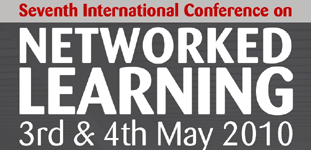

Teaching with wikis and blogs: Potentials and pitfalls
Nina Bonderup Dohn
University of Southern Denmark, Kolding, Denmark
Abstract
The use of wikis and blogs within higher education and continuing professional development is becoming increasingly popular. On the face of it, these tools seem ideal for facilitating learner-centered activities based on the production of material by the learner him- or herself, potentially drawing on different contexts of learning in and across school settings. Over the last few years, a number of conference papers and journal articles have been devoted to elucidating this issue. Quite a few of these papers and articles seem rather uncritically to rejoice in the possibilities of wikis and/or blogs of furthering e.g. knowledge construction, critical reflective thinking and collaboration between learners, often without substantiating the enthusiasm with empirical studies corroborating the realizability of the possibilities, or even their existence. Other papers report case studies, drawing very positive conclusions on fairly limited data. It seems time for a review of the potentials and pitfalls of teaching and learning with the employment of these technological tools.
The aim of this paper is to deliver such a review. This will be done, drawing on the interpretation of a range of case studies reported in the literature as well as on the experience from several educational development projects in which the present author has been involved. The structure of the paper is as follows: First, some putative potentials of utilizing web 2.0, including wikis and blogs, in educational practices are presented: flexible learning, competences, pedagogical advantages, learner motivation, and ease of participation. Second, the more specific affordances of wikis and blogs are discussed and examples are given of usages in accordance both with the general web 2.0-potentials and the more specific affordances of wikis and blogs. On this basis, a number of issues and pitfalls are identified which show up across the different usages. These issues include the anchoring of the learning activities, assessment and quality criteria, the role of the teacher, and implicit competence demands on learners. The discussion of issues and pitfalls leads, finally, to an appraisal of the extent to which the putative potentials, posited at the outset, exist and are realizable in educational practice of today.
| About NLC | Welcome Messages| Acknowledgwments | Conference Proceedings| Keynote Speakers| Index of Presenting Authors| Contact |